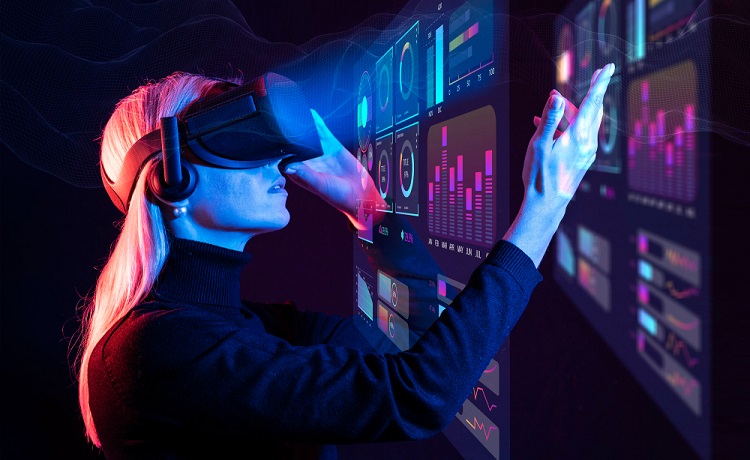Explore the world of blockchain gaming, where player-driven communities, security, and openness change the way you play games.
Blockchain-based games allow gamers to purchase and sell in-game items and currency. This opens up a new world of possibilities for players.
But these games must overcome several challenges to succeed. Those that manage to do so will likely be successful.
Some of these include granting immutable ownership of in-game assets, solving item theft and hacking issues, and creating more realistic economic systems.

Decentralization
Using blockchain technology, gamers can be more involved in the direction of gaming platforms than ever before. In this way, they can vote on future game development and even contribute to funding decisions.
This will help create a more democratic and decentralized gaming environment. This will also make it easier for gamers to find the games that appeal to them most.
In addition, a decentralized approach to gaming can increase player loyalty and trust.
Blockchain gaming can also unlock new opportunities for in-game economies. For instance, games can implement reward systems to encourage players to participate in competitive gaming.
Moreover, gamers can use cryptocurrency, or the game’s native token, to purchase virtual assets. These assets can include characters, weapons, in-game money, and other items.
These assets can be traded or sold for real cash. They can also be used across games, which gives gamers more control over their in-game wealth.
Many gamers are excited about the potential of blockchain technology to transform gaming. However, the technology is still in its early stages.
Despite blockchain’s promise, several hurdles must be overcome before mass adoption can occur. These challenges include scalability, environmental concerns, and the need for widespread adoption.
Transparency
As gamers spend more and more time, money, and resources on games, they want to see the value of their investments reflected in the real world. Blockchain technology allows them to do just that.
Its public blockchain makes all transactions visible to everyone and can prevent fraud. For instance, some clogged the Ethereum blockchain in 2017, and developers responded quickly to stop hackers from stealing money.
Blockchain can also create new gaming economies that empower players, incentivize loyalty, and introduce new revenue streams.
One such example is a game called Splinterlands, which enables players to rent land in virtual worlds and receive rewards for their actions.
Players can also invest their in-game currency in the real world, creating an even more diversified and lucrative game economy.
In addition, blockchain can make gaming communities more active and involved in platform governance. For example, by implementing a DAO structure, blockchain games can allow gamers to participate in platform operations, fundraising, and future direction.
Despite the many benefits of blockchain gaming, there are still some obstacles to overcome before this technology is widely adopted in the gaming industry.
For one, the proof-of-work system used in most blockchain networks consumes substantial energy. However, developers can reduce their environmental footprint by implementing more energy-efficient consensus mechanisms, such as proof-of-stake.
Ownership
As the gaming industry evolves, it is moving from where players access levels and climb a leaderboard to where they can own their game’s assets.
Whether it’s virtual clothing, in-game currency, or even in-game characters, ownership of these items is becoming the norm thanks to NFTs and blockchain technology.
This is known as the metaverse, a goldmine of earning opportunities and new business models.
The most significant benefit of blockchain games is that gamers are now more than just participants; they’re co-creators.
By assigning real-world value to virtual collectibles, NFTs create a sense of actual ownership for the players and allow them to move these in-game assets between games.
This allows for a greater degree of interoperability, which is critical to the success of gaming economies.
In addition, blockchain-based games can provide gamers with rewards that can be traded for both in-game items and cryptocurrencies. This enables players to gain actual monetary value from their gameplay, which is something other than what can be achieved in traditional centralized games.
However, there are still issues that need to be addressed before blockchain gaming becomes mainstream.
For example, the blockchain’s proof-of-work consensus mechanism consumes a lot of energy, which has raised concerns about the environmental impact of these games.
This is why some games switch to more energy-efficient protocols, such as proof-of-stake.
Reliability
A major stumbling block that blockchain games must overcome is that their transactions are slow.
Blockchain networks are notorious for their sluggishness, and when the phenomenon descended on the Ethereum network in 2017, it overwhelmed it to the point of crisis and required a special emergency task force.
Gaming companies must find a way to increase performance without sacrificing security or detracting from the gameplay experience.
The best solution may be something other than a traditional blockchain, but rather some other type of distributed ledger that can handle the load and reduce transaction costs.
The promise of blockchain gaming is accurate, and the potential benefits are far-reaching. From earning and trading to building game economies and community governance, the emergence of blockchain in gaming will impact everything from the user experience to the back-end infrastructure.
However, as we look at how the blockchain transforms gaming, it’s important to remember that even though its technology is revolutionary, it’s still a work in progress.
Ultimately, gaming will likely reach the tipping point for blockchain adoption when it solves the trilemma of speed, security, and reliability.
But how exactly will it do that? The answer could provide valuable lessons for other industries seeking to implement blockchain solutions.




